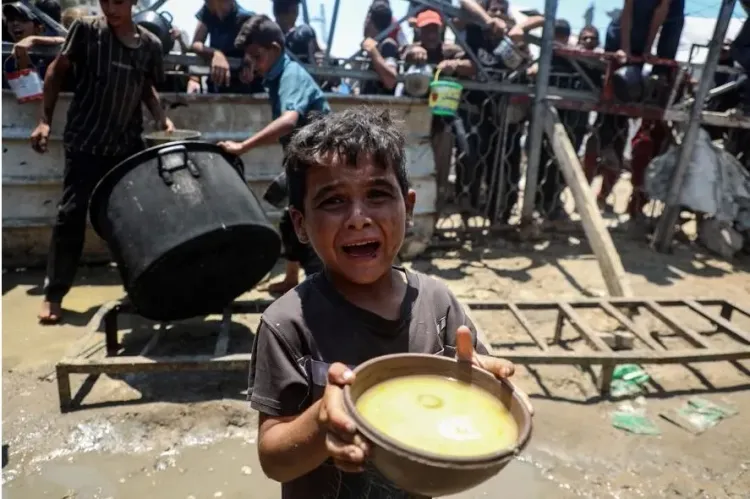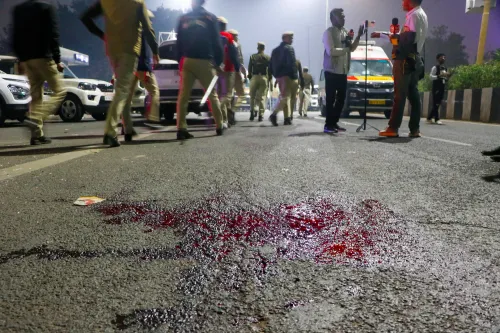Is the Deadly Starvation Crisis in Gaza Deepening?

Synopsis
Key Takeaways
- Gaza's conditions are deteriorating rapidly.
- A deepening starvation crisis threatens vulnerable populations.
- Safe humanitarian access is crucial for effective aid delivery.
- International cooperation is needed to address the crisis.
- UN emphasizes adherence to humanitarian principles.
United Nations, July 26 (NationPress) The already dire conditions in Gaza are rapidly worsening as the deadly starvation crisis escalates amid military operations resulting in death and devastation, according to UN humanitarian officials.
"Life is being drained out of Gaza, with systems and services on the brink of collapse," stated the UN Office for the Coordination of Humanitarian Affairs (OCHA) on Friday.
"Just yesterday, local health authorities confirmed that two more individuals succumbed to starvation." OCHA indicated that increasing hunger and malnutrition heighten the risk of illnesses that compromise the immune system, particularly among vulnerable groups such as women, children, the elderly, and those with disabilities or chronic illnesses, as reported by Xinhua news agency.
"The consequences can become lethal swiftly," the office cautioned.
Food scarcity is severely affecting pregnant and nursing women, with their babies facing a higher likelihood of being born with health issues.
OCHA noted that the flow of supplies into Gaza is far from sufficient to meet the overwhelming needs.
The Times of Israel, referencing an Israeli military civil affairs unit, reported that Israel would permit Jordan and the United Arab Emirates to airdrop humanitarian supplies into Gaza, in coordination with the Israel Defense Forces.
"We welcome all initiatives to deliver aid to the individuals in Gaza who are in urgent need," stated Stephanie Tremblay, associate spokesperson for UN Secretary-General Antonio Guterres, on Friday.
"We emphasize that the most effective means to deliver supplies is via road. Therefore, it is crucial that aid is permitted to flow through all crossings and available corridors."
In another development, OCHA mentioned that the UN relief chief has sent a letter to the head of the Gaza Humanitarian Foundation, a US-run, Israeli-supported system for distributing aid through four militarized hubs across the strip, rather than the traditional UN-led approach with 400 community-based supply points.
Tom Fletcher, UN under-secretary-general for humanitarian affairs, remarked that the United Nations is prepared to collaborate with any partner to ensure that urgently needed humanitarian assistance reaches those in Gaza.
However, he stressed that any partnership must comply with globally recognized principles of humanity, impartiality, neutrality, and independence.
He emphasized that aid must be directed where the needs are most pressing, without discrimination, asserting that humanitarian efforts should respond to civilians in need, not conflicting parties.
OCHA highlighted the absence of safe, sustained humanitarian access.
"Aid workers face constant hazards, crossings are unreliable, and essential supplies are frequently obstructed," the office reported.
"If Israel were to open the crossings, permit fuel and equipment entry, and ensure the safe operation of humanitarian staff, the United Nations would expedite the delivery of food aid, health services, clean water, waste management, nutrition supplies, and shelter materials."
The office pointed out that ongoing restrictions imposed by Israeli authorities on aid delivery continue to hinder the ability of humanitarians to respond effectively.
OCHA revealed that, amid access constraints, out of 15 attempts to coordinate humanitarian movements within Gaza on Thursday, four were completely denied, while three others faced impediments.
"The volume of fuel entering Gaza remains insufficient to sustain critical facilities," OCHA concluded.









